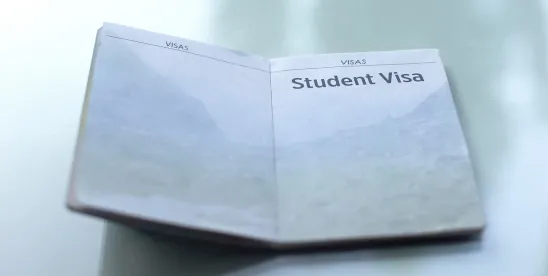News sources reporting on a U.S. Department of State internal cable have announced that the temporary pause on scheduling new student visa interviews for F, M, and J visas has been lifted. This pause was initially implemented while the State Department implemented steps to expand social media screening for student visa applicants. Under the new directive, consular officers are now required to screen the social media and online presence of student visa applicants.
Quick Hits
- The U.S. State Department has lifted the temporary pause on scheduling new student visa interviews for F, M, and J visas and is now requiring consular officers to screen applicants’ social media and online presences.
- Enhanced vetting procedures for student visa applicants, including detailed social media scrutiny, are expected to increase processing delays and refusals, impacting international students’ plans to study or train in the United States.
Analysis and Impact
The screening process involves checking for any signs of hostility “towards the citizens, culture, government, institutions, or founding principles of the United States.” Additionally, officers will vet for support of terrorism, antisemitic harassment, violence, or militant groups. This scrutiny is part of the Trump administration’s broader efforts to address stated security concerns with universities that enroll foreign national students.
Consular officers are instructed to flag applicants with a history of political activism and to consider the likelihood of such activities continuing in the United States. Consulates will take detailed case notes and screenshots of online content. The screening applies to both new and returning student visa applicants and includes a broad definition of “online presence,” encompassing social media and online databases.
While the factors identified do not automatically disqualify applicants, they trigger further review to ensure compliance with U.S. immigration admissibility laws. The cable also directs embassies to prioritize interviewing physicians applying for a J-1 visa for medical residency and educational exchange, and students enrolled at universities where international students constitute 15 percent or fewer of the total student population.
University and Employer Impacts
Although the recent State Department cable lifts the Trump administration’s pause on visa interviews for F, M, and J visa applicants, the heightened vetting procedures, particularly enhanced scrutiny of applicants’ social media histories, are likely to increase visa processing delays and refusals. International students planning to enter the United States for academic study or work-based training can expect:
- Longer processing times due to expanded vetting and limited appointment availability, especially as demand grows over the summer ahead of the fall academic term.
- Consular backlogs and capacity constraints that may further slow visa issuance.
- Additional documentation requirements, including:
- usernames for social media platforms;
- detailed biographic and travel histories; and
- sensitive personal information covering the last five years.
- Greater risk of delays or denial, as adjudications may hinge on subjective interpretations of social media content and other discretionary factors.






 />i
/>i
